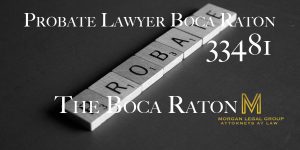Before creating an estate plan in Florida, it is important to have basic knowledge on some certain things regarding estate planning in Florida.
What is the importance is estate planning?
The importance of estate planning can never be overemphasized. Estate planning is your legacy. It is the only way by which you can ensure that your life’s work passes on to whoever you deem deserving, and that your instructions are carried out even in death. Through estate planning, your charitable works can continue if you lay down instructions for that. But estate planning is not all about death but life as well. Proper estate planning guarantees that your estate and personal affairs are managed by someone of your choosing when you become incapable of running your affairs yourself.
What documents are included in a Florida estate plan?
The following documents are most often included in a Florida estate plan:
- Will: Your Will is a document which testifies to your desires concerning the transfer of your assets after your death. A will goes into effect only after death, and when found to be valid (i.e. drafted according to Florida requirements), must be followed to the letter by the probate court. In the will, you should name an executor who would carry out your instructions. You must also name your inheritors and state without ambiguity how and what they are to inherit. If you have minors, you can also appoint a guardian for your them by in the will.
- Financial power of attorney: with this document, you authorize a party to take charge of your financial affairs on your behalf when you become incapable of handling them yourself.
- Healthcare proxy: this document allows you authorize someone to make healthcare decisions on your behalf when you become incapable of handling them yourself.
- Living trust: Living trust: A living trust may not be necessary for small estates, but is recommended for larger ones. A Florida living trust offers probate avoidance (as opposed to a will) and can transfer assets during your lifetime with utmost effect without court formalities. Your trustee would manage your estate and personal affairs during incapacity, thus avoiding guardianship proceedings.
Do I need to carry out tax planning in Florida?
Florida has no state income tax, inheritance tax, nor state estate tax. However, Floridians still have federal estate tax to pay. Any estate worth over $11.58 million of which the owner dies in 2020 is subject to a federal estate tax reaching up to 40%. Federal estate tax can be avoided through the use of gifts, trusts, etc.
Must my estate be probated in Florida?
When you die leaving assets owned in your name only, those assets may be probated before they can be inherited. The following assets will pass outside probate in Florida:
- Assets held in a trust (thus named after the trust)
- Assets having designated recipients such as IRAs, etc.
- POD bank accounts
- Jointly owned assets.
All other assets will be probated, and probate will be initiated by the executor by filing the will in the local circuit court at least 10 days after the death.
Summary Probate
Summary probate is a simple probate process done when:
- The decedent’s estate does not exceed $75,000
- When the death occurred more than 2 years ago.
What happens when I die without an estate plan?
When someone dies without an estate plan, they are said to have died intestate. In such a situation, the estate of the deceased becomes subject to the intestacy laws of that state where the person owned property. When you die intestate in Florida, the intestacy laws transfer your entire possessions to your surviving spouse in the situation you have no descendant who is not also a descendant of your spouse. If there is, then the possessions will be shared by your descendant and surviving spouse. In the absence of either, your possessions go to your parents, grandparents, or great-grandparents if alive. If there are no surviving heirs, the estate becomes a property of the state of Florida. To avoid all these, you need to create an estate plan now.
Do I need an estate planning attorney to help with my Florida estate planning?
While a simple will may be easy to create, trusts, powers of attorney, tax and disability planning are way more complex, requiring legal and professional expertise. A single error can plunge your life’s work into catastrophe, but an estate planning attorney will ensure that your estate plan conforms to Florida laws and serves your best interests. Contact one now.








